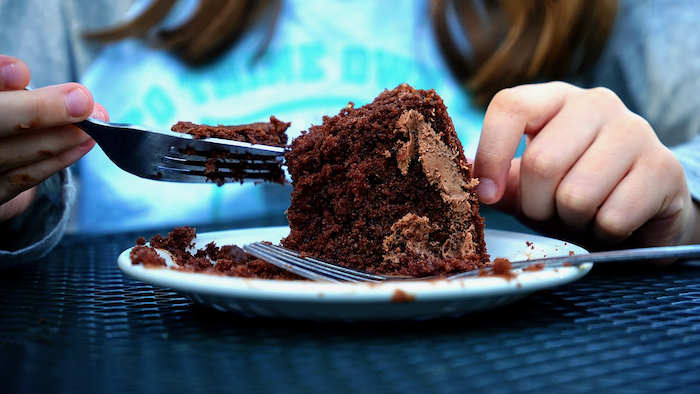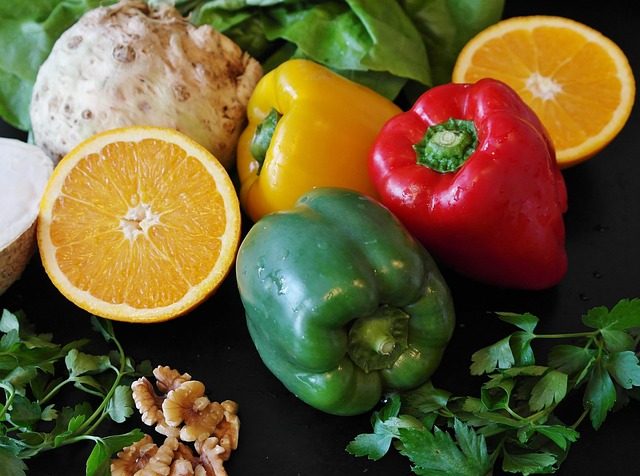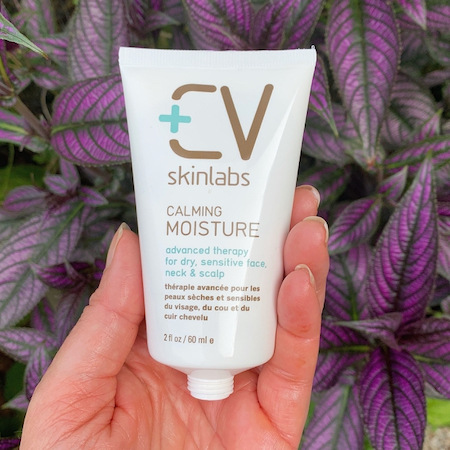
Many of you have asked us: Does sugar cause acne?
The short answer is, “Yes.” But just how it does so is a bit more complicated.
If you eat one chocolate chip cookie, for example, that doesn’t mean you’re going to break out in the next couple of hours.
But your overall diet can have a big impact on how your skin behaves.
Does Sugar Cause Acne? What the Research Says
Decades ago, dermatologists didn’t put much credence in the diet-skin connection. That has changed, mostly due to several recent studies that have found that what we eat does matter.
In a 2016 study, for instance, scientists came right out and said that the relationship between diet and acne is “highly controversial.” But in reviewing the latest scientific literature, they concluded that the “association between diet and acne can no longer be dismissed.”
It wasn’t straight sugar that was the problem in this study, though. Instead, researchers found that high glycemic diets—those including a lot of foods with a high glycemic index—could exacerbate existing acne.
The glycemic index (GI) ranks foods containing carbohydrates according to how much they affect someone’s blood sugar. High glycemic foods are those that raise blood sugar quickly. Those who consume a lot of them for a long period may be at a higher risk of type 2 diabetes.
Foods high in GI include white bread, white rice, breakfast cereals, cereal bars, cakes, cookies, sweet treats, white potatoes, fries, chips, crackers, and sweetened dairy products.
Low GI foods include those with more fiber, like whole grain foods, pulses, and some fruits and vegetables. They break down more slowly in the digestive system and result in a gradual rise in blood sugar over time.
Sugar and Acne: What About Regular Sugar?
The evidence is less clear on sugar on its own. Rather, the connection between spiking blood sugar levels and acne is stronger. But as you probably know, drinking a soda pop full of sugar spikes your blood sugar levels too.
In one 2020 study involving over 24,000 participants, researchers found that the consumption of fatty and sugary products, sugary beverages, and milk was associated with current acne in adults. But it wasn’t just about drinking sodas. The findings suggested that a Western diet as a whole—which is typically rich in animal products and fatty and sugary foods—is linked with the presence of adult acne.
We already know that diet has a significant impact on our health in general, so it’s no surprise that it can affect our skin too. The skin is the body’s largest organ and receives nutrients from the bloodstream just like the heart and liver.
So in the end, it’s more about eating a healthy diet than it is about banishing sugar entirely from your life. And that’s good news for those with a sweet tooth. Eat whole grains, fiber-rich foods, and produce most often, and you won’t have to worry about the occasional cookie or piece of cake.
Does Sugar Cause Acne—What to Do About It
Of course, everyone’s skin is different. Whereas those prone to acne breakouts may be more triggered by certain sugary or high GI foods, others may not be.
That means you have to do some experimenting to determine the best diet for your skin. Any changes moving you to a healthier diet are likely to help, so don’t hesitate to start today.
What if you are eating healthy, though, and still struggling with acne? Try these tips.
Cut back on sugar.
Refined sugar is the key here. That’s the sugar in soda pop, sugary treats, candy, and baked goods. Try to set little goals, like having one less Pepsi a day, or one less dessert.
Eat more low GI foods.
Balancing your blood sugar levels is good for your skin and your overall health.
Foods that are low on the GI index take longer to break down in your body and will not spike blood sugar levels, which is good for your skin. Harvard Medical School provides a handy chart telling you the GI of over 60 foods.
Cut back on dairy foods.
Though the evidence is limited on whether dairy products increased the risk of breakouts, it does seem that some people may be sensitive to dairy and more likely to react to it. If you notice more acne after consuming dairy, you may want to try alternative milk or simply cut back a little and see what happens.
Manage your stress.
Diet can be a factor in acne, but it’s not the only one. Stress is a big one. In a 2017 study of nearly 150 women, for example, scientists found that increased stress was strongly correlated with greater acne severity.
When you feel stressed, your body releases hormones like cortisol, which is known to increase oil production in your skin glands. Stress also encourages the release of pro-inflammatory chemicals in the skin, which can lead to breakouts.
Try to engage in a stress-relieving activity every day. Good options include exercise, meditation, deep breathing, time with loved ones, and engaging in hobbies you enjoy.
Use anti-acne skin care products.
Some skin care products—typically moisturizers and foundations—can clog your pores. Those that contain mineral oil or other petrolatum products are some of the biggest offenders.
If you have acne-prone skin, don’t put anything on it without checking it for potential pore-clogging ingredients. We’ve listed some of these below, but this is not a comprehensive list.
- Coconut oil
- Cocoa butter
- Marula oil
- Palm oil
- Alcohols and stearates
- Stearic acid
Instead, look for non-comedogenic ingredients that do not clog pores. These include:
- Aloe vera
- Vitamin C
- Glycerin
- Sunflower oil
- Sweet almond oil
Keep in mind that even if the label on the product says “noncomedogenic,” there is no regulation on that term. Though the product is less likely to have clogging ingredients, there is no third-party testing saying that it won’t trigger acne, so go by your own experience.
CV Skinlabs Won’t Clog Pores
As a note, CV Skinlabs products will not clog your pores. We recommend you wash with a gentle cleanser, then use our Rescue + Relief Spray as a toner. It is ideal for the acne-prone, since it’s oil-free and can calm acne inflammation while adding some moisture back to the skin. It’s much preferred over alcohol-based toners for acne-prone skin.
Then choose your moisturizer carefully. Our Calming Moisture is balanced to give your skin the moisture it needs without clogging. It also helps shore up your natural skin barrier, which helps trap moisture inside your skin. That means with prolonged use, your skin will get better at hanging onto the moisture it has without over-producing oil.
Have you noticed that sugar makes your acne worse?



